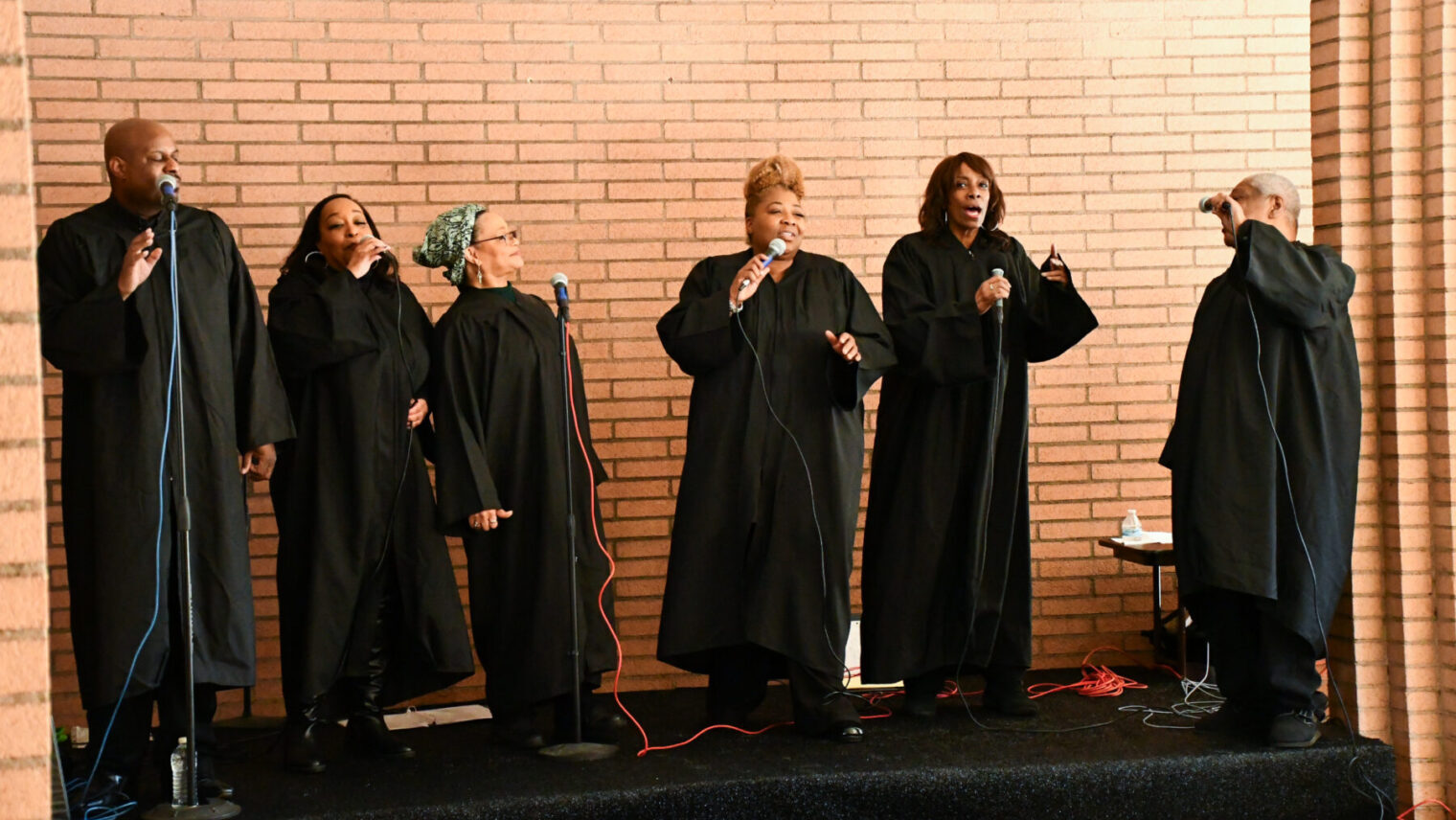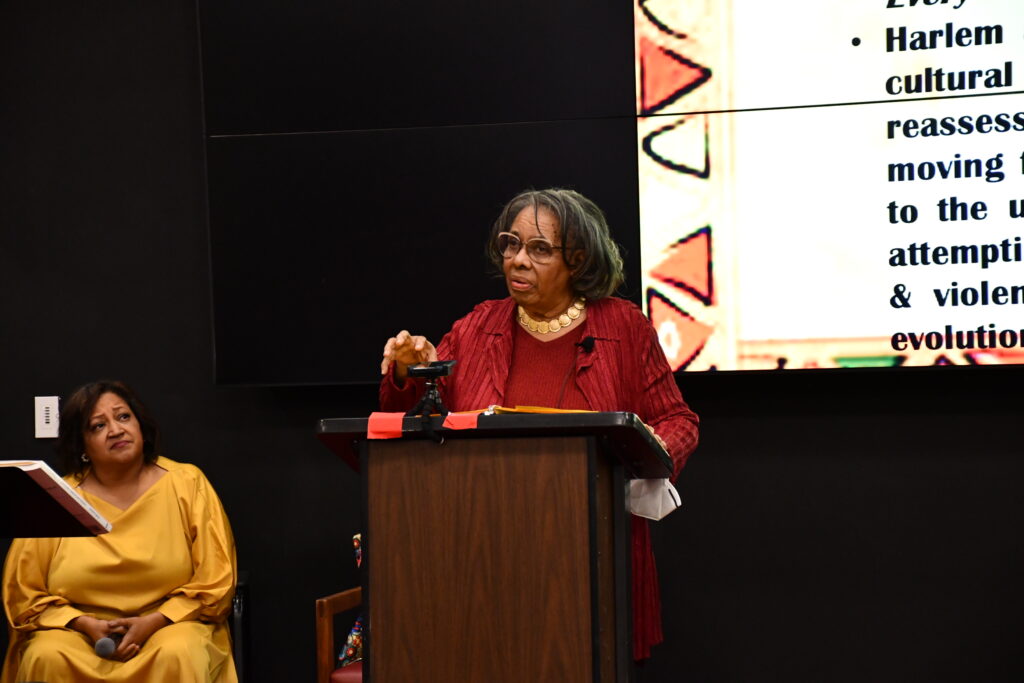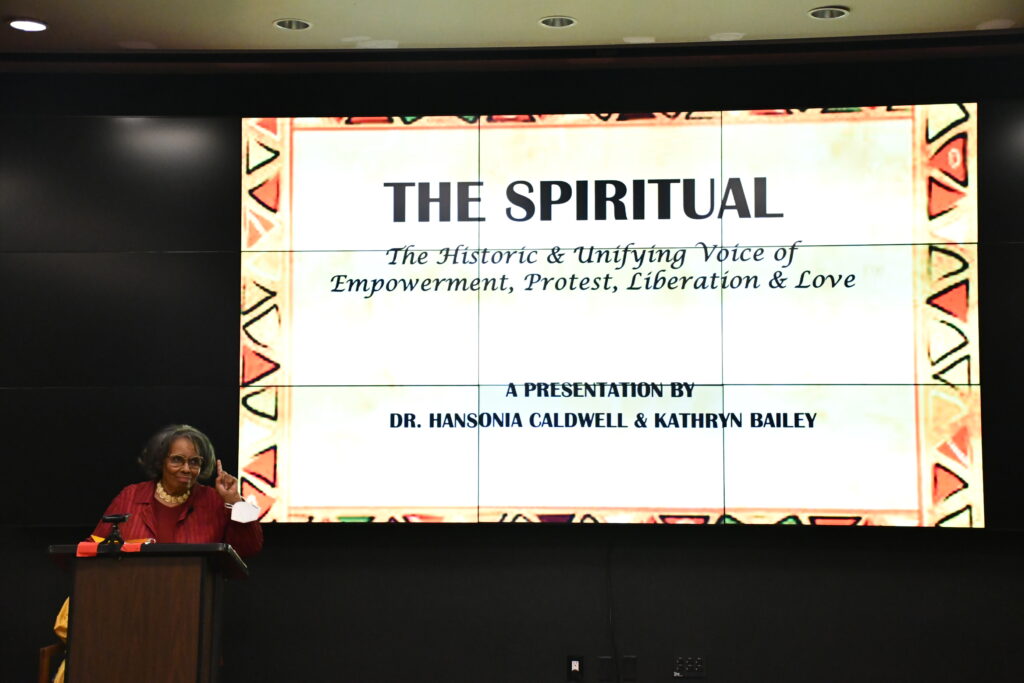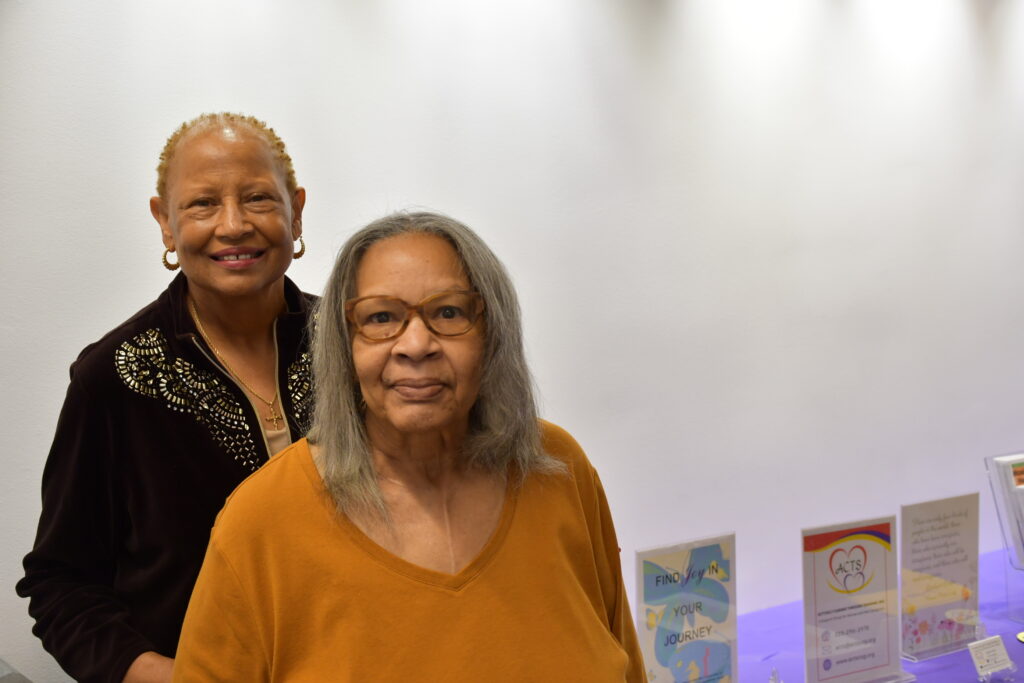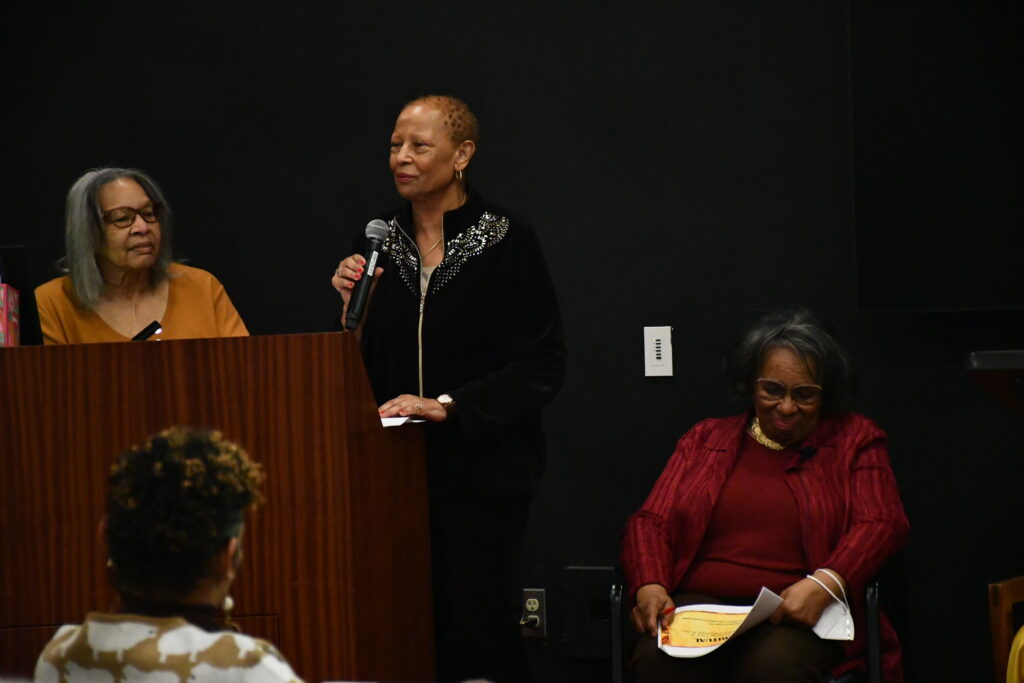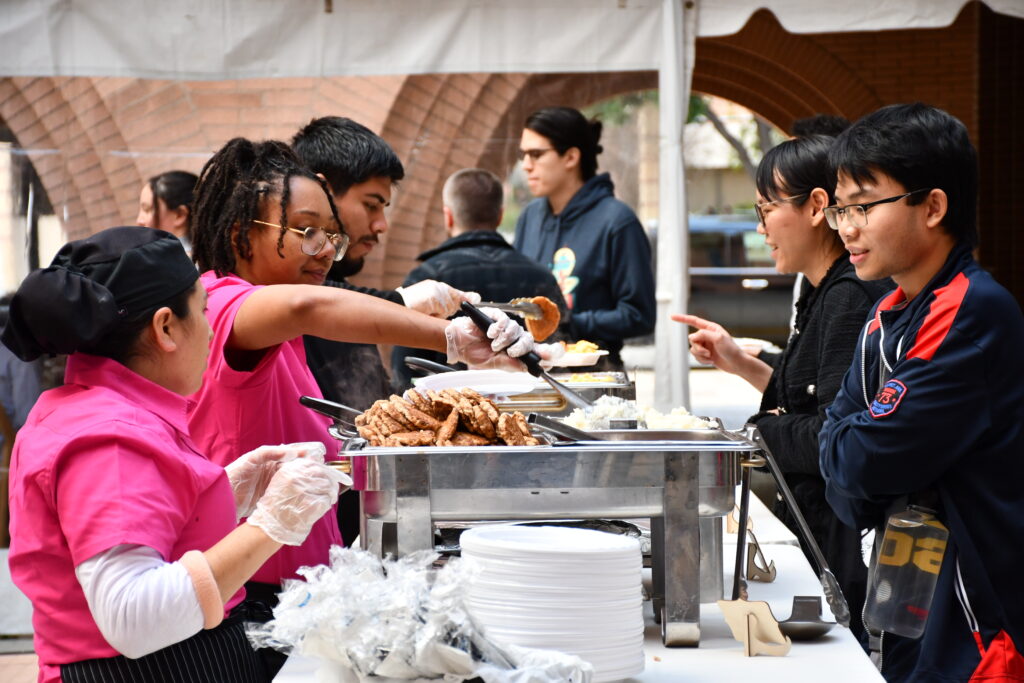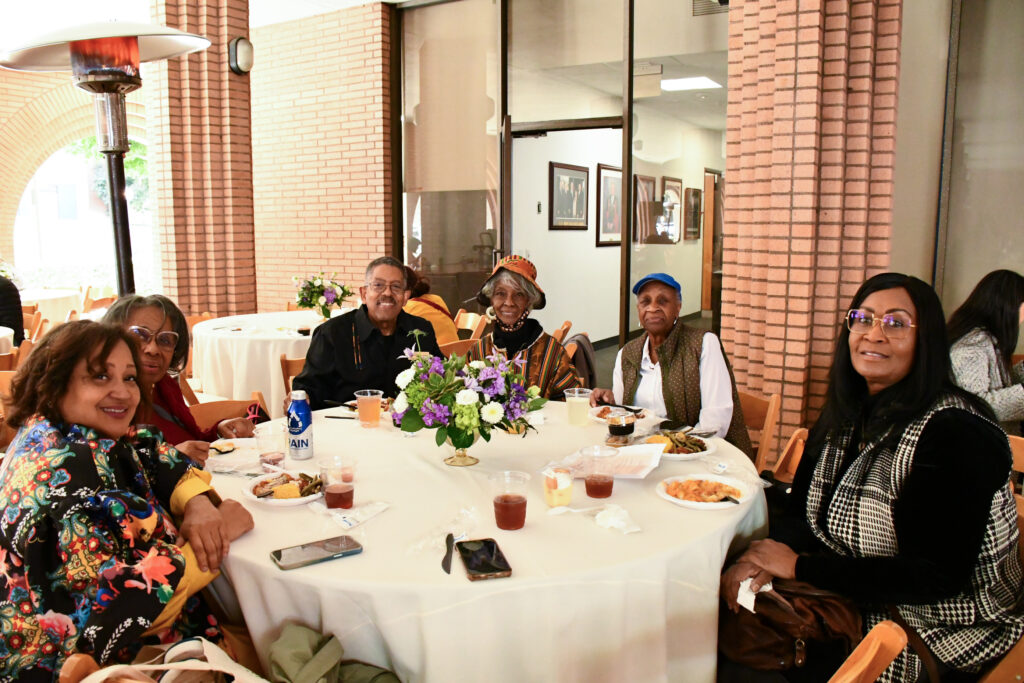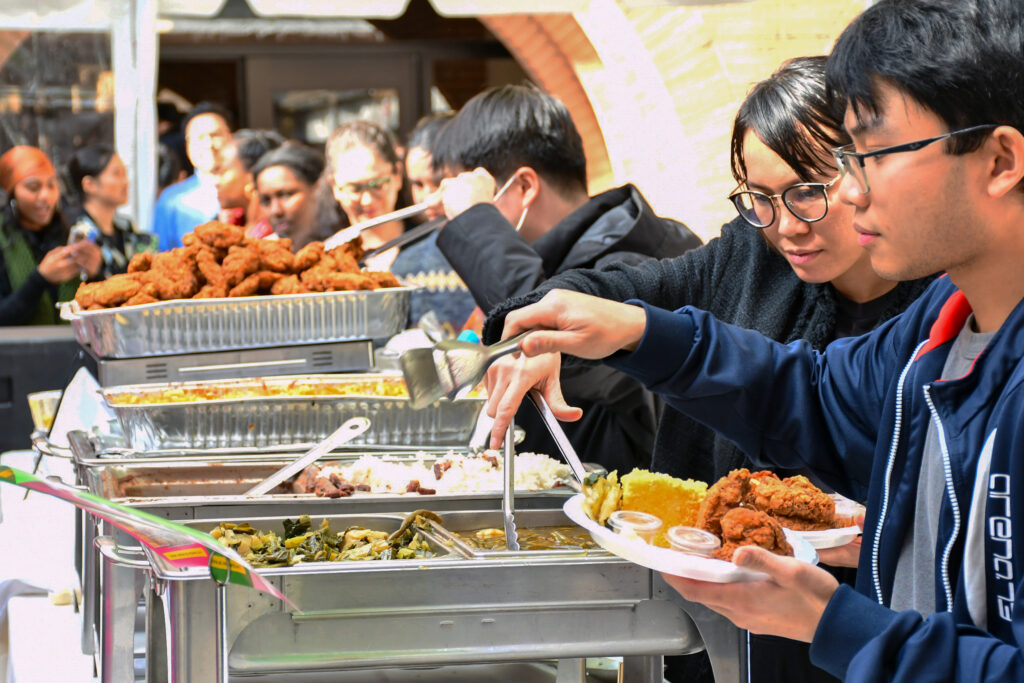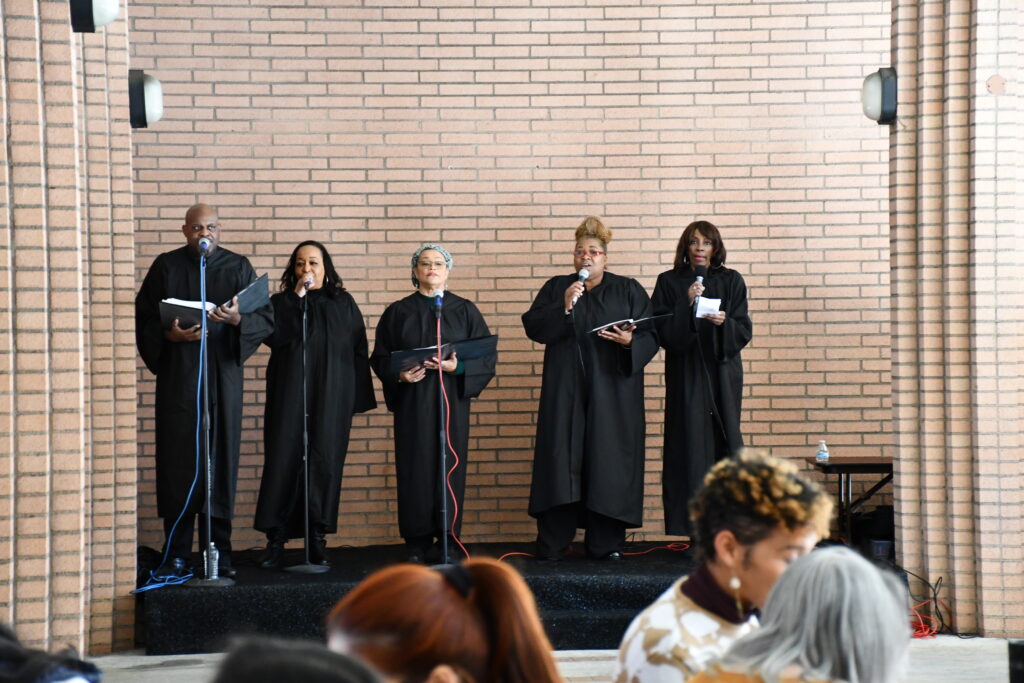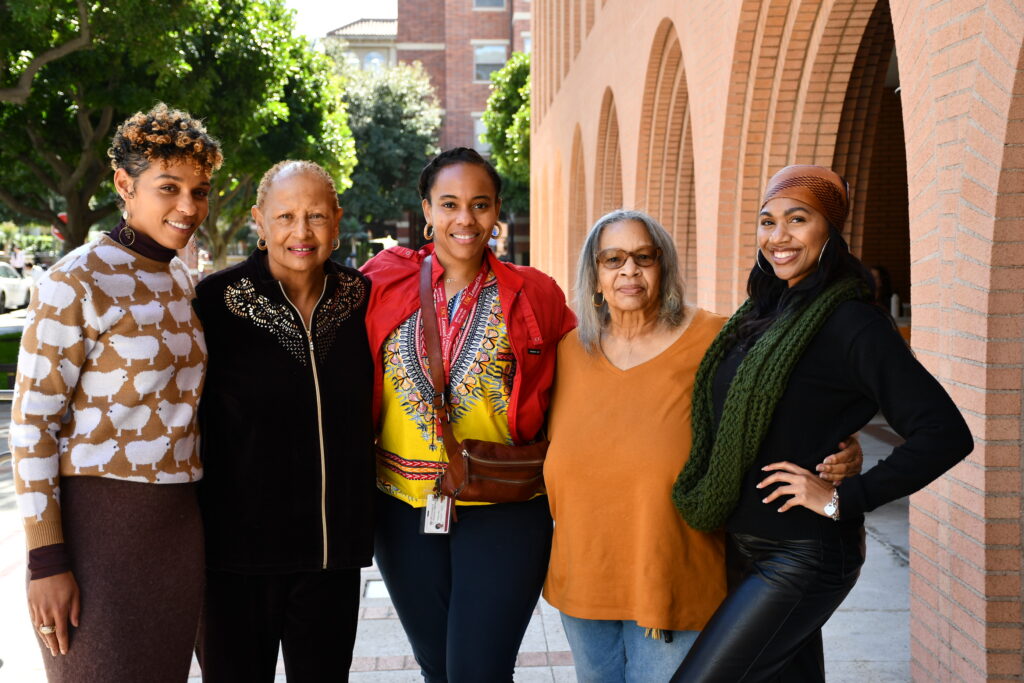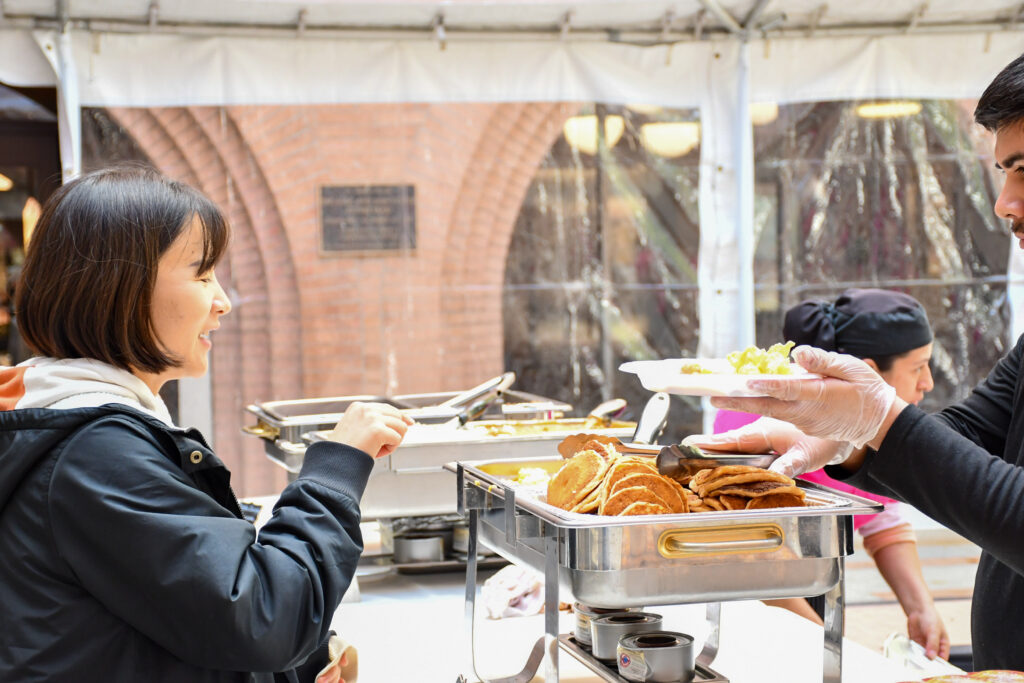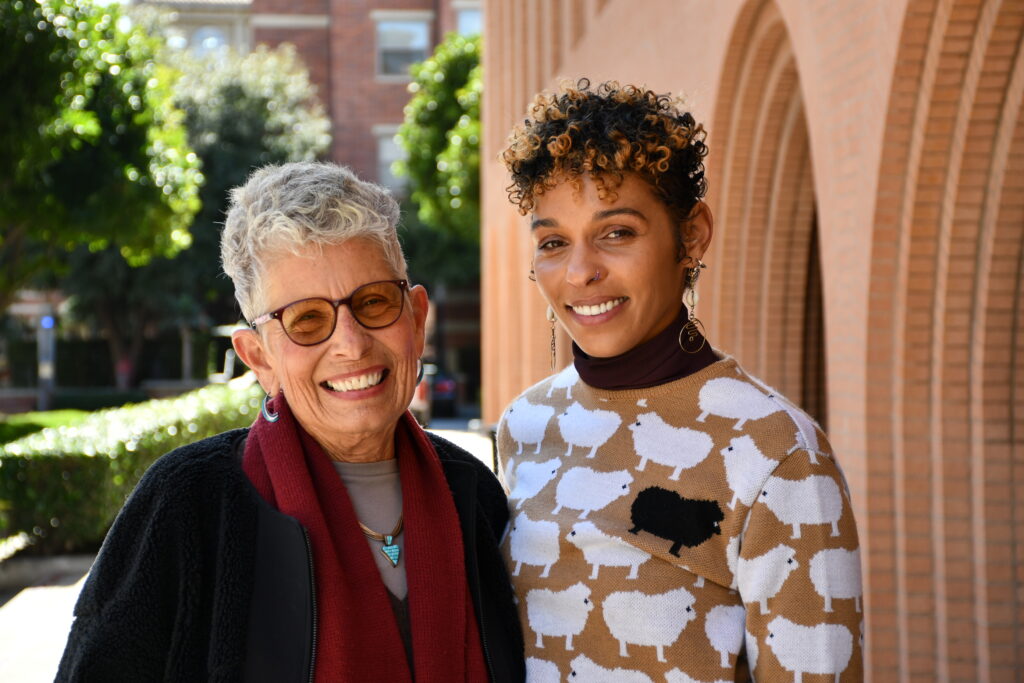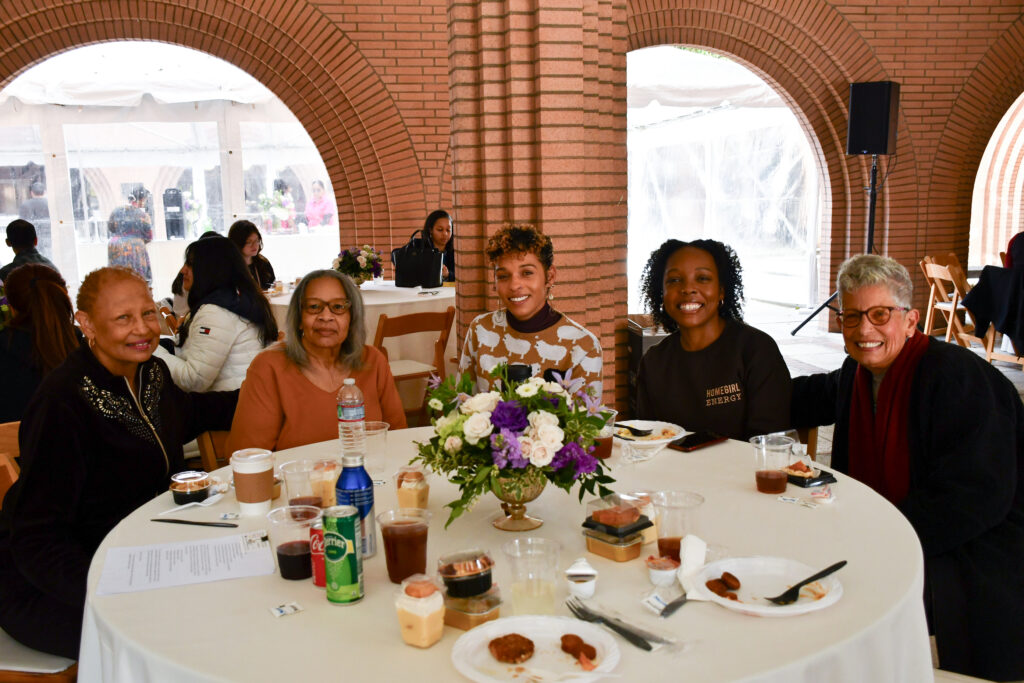The Leonard Davis School of Gerontology celebrated Black History Month with a lunchtime event emphasizing the power of Black music, food and family ties. A gospel performance and soul food buffet meal was preceded by lectures on Black spirituals, soul food and caregiving.
In his welcome to guests, USC Leonard Davis School Dean Pinchas Cohen noted that USC’s theme for this year’s month-long observance is, Empowering Excellence: Celebrating Black History through the Arts. He also reflected on his own exposure to spirituals. His father played them every Saturday in their home in Israel, having heard them as a student in America and been moved by their connection to the Old Testament.
Guest lecturer Dr. Hansonia Caldwell, an emeritus professor of music, music historian and USC alumna, spoke about the origin of these slavery-era songs of resistance, the meanings behind them, and their influence on gospel, jazz, blues, soul hip hop and other musical styles.
Referring to the African continent as “the root of the tree,” Caldwell described how the work song of the spirituals led to what she called “the most amazing flowering of musical culture you could possibly have found.”
“Black America was always speaking to America with a beauty of words and the powerful impact of music,” she said. “African Diaspora music of 2024 connects to beginning of time. I want you to understand continuity and impact of the African culture, African American culture and the African Diaspora musical voice.”
USC Leonard Davis School Assistant Professor Lauren Brown, a member of the DEI committee and an organizer of this event, emphasized that passing down cultural traditions through multiple generations is especially relevant to the field of gerontology.
“Many of us were drawn to the study of aging because of unique and powerful experiences with grandparents,” she said.
In a talk about the history of soul food, USC Leonard Davis School student Jordyn Roberson, a human development and aging major with a minor in nutrition, explained how she launched Jordie’s Joint, a soul food catering business that is introducing healthy updates to recipes that date back to when enslaved ancestors used ingenuity – and now known-to-be-unhealthy additives like salt and animal fats – to make undesirable food appealing.
“I’m grateful that they had the minds to develop delicious foods out of things no one wanted to eat,” she said, while adding that there are now more modern options like air frying or plant-based recipes. “I want to encourage people to explore different methods of cooking and to change way people think about food.”
Another set of speakers also aimed to update traditional behaviors, namely what they called a cultural pressure to keep conflict and grief quiet and “inside the house”. Sisters Sharon Melancon and Jeanie Harris founded Actively Caring Through Sharing (ACTS), a local, South Los Angeles-based caregivers’ support group that grew from their personal need for support when caring for their mother and first cousin. They provide resources, education and a stigma-free, no-cost forum for caregivers.
“Black culture tells us be strong; we’re told not to cry,” said Melancon. “We are a safe space and a no judgement zone where you can express how you are really feeling,” she said.
After the three speakers, attendees were treated to lunch catered by M’ Dears, a Black-owned soul food and creole restaurant in South Central, and a Gospel performance from Fifth Avenue Entertainment. In addition to Professor Brown, the event was organized by the Leonard Davis School DEI committee, with special recognition to members Assistant Professors Cristal Hill and Connie Cortes and Assistant Dean of Diversity and Inclusion Donna Benton and the school student services team.
Top: attendees enjoyed a lunchtime Gospel performance from Fifth Avenue Entertainment.

